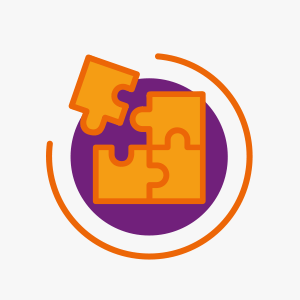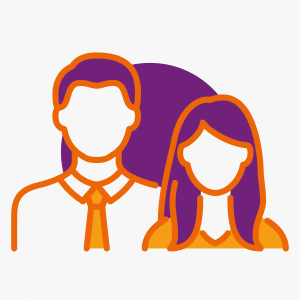Psychology & Counselling Therapies In Scotland
Enlightened Psychology & Counselling Service provides a range of therapeutic approaches to treatment. Therapy can be delivered either in a face-to-face format throughout our Scotland locations or via remote methods, such as phone, video or online (via Instant Message or email).
Let our professionals guide you
Therapy you can trust!
Cognitive Behavioral Therapy (CBT) offers young adults and individuals a structured and practical approach to tackling and overcoming challenging thoughts, emotions, and behaviours. Through CBT, individuals can develop valuable coping skills and gain a deeper understanding of their thought patterns, empowering them to navigate life’s hurdles with greater confidence and resilience.
Our Awards
Enlightened Psychology & Counselling are delighted to have received the following awards
Business Excellence Award
"Best Psychological Therapy & Counselling Provider 2022 – Scotland”
Corporate Livewire
"Counselling Service of the Year – Glasgow 2021-2022”
Our Therapies

Cognitive Behavioural Therapy (CBT)
Cognitive Behavioural Therapy or CBT is a talking therapy and the treatment of choice for many problems and is recommended by the National Institute of Clinical Excellence (NICE).
CBT focuses on the ‘here and now’ and looks at the way we think about things and the relationship between our thoughts, feelings and behaviour. CBT may also look into the past however and how past experiences have impacted on how we interpret the world now. By recognising unhelpful thinking patterns we can start to change the way we think about things and this can have a direct impact on how we feel, and subsequently, how we behave. It is not an event itself that affects how we feel it is the way we interpret or think about that event.
CBT is often a relatively short treatment, which can bring about changes and positive results fairly quickly. Some CBT treatments need only last around six weeks, however, depending on the problem, this can take longer, lasting several months. Sessions would normally be weekly, lasting up to an hour. Problems are explored in therapy and a plan is developed for tackling them. Useful techniques and skills are developed that can be applied whenever needed; long after therapy has ended.
What is it helpful for?
CBT can treat a range of different mental health problems, such as:
- Anxiety
- Phobias
- Depression
- Obsessive-Compulsive Disorder (OCD)
- Panic Disorder
- Post-Traumatic Stress Disorder (PTSD)
- Bipolar disorder
- Personality Disorders
- Attention Deficit Disorder and Autism Spectrum Disorder
- Eating disorders – such as anorexia and bulimia
- Psychosis
- Schizophrenia
- Sleep issues/Insomnia
- Alcohol and Substance abuse
Schema Focused Therapy
Schema focused therapy is often the ‘next step’ from CBT, focusing more on how past experiences and old patterns of behaving are affecting the here and now; which are not helpful any more. Schemas are developed early in life during childhood or adolescence, but they can also form later, in adulthood. These schemas are often perpetuated through acting in certain ways that serve to maintain them and do not allow them to be challenged. The aim of therapy here is to help the client to break these strong negative patterns of thinking, feeling and behaving and develop healthier alternatives to replace them.
The schemas that are targeted in treatment are enduring and self-defeating patterns that typically begin early in life. These patterns consist of negative/dysfunctional thoughts and feelings, have been repeated and elaborated upon, and pose obstacles for accomplishing one’s goals and getting one’s needs met. Some examples of schema beliefs are: “I’m unlovable,” “I’m a failure,” “People don’t care about me,” “I’m not important,” “Something bad is going to happen,” “People will leave me,” “I will never get my needs met,” “I will never be good enough,” and so on.
Schema focused therapy often lasts longer than standard CBT and depending on the individual and the problems experienced, can last for several months or even years.
Eye Movement Desensitisation and Reprocessing (EMDR)
Eye Movement Desensitisation and Reprocessing or EMDR is a powerful psychological treatment for traumatic memories but also many other psychological problems such as anxiety issues, depression, phobias etc. EMDR is a treatment that enables traumatic memories to be reprocessed so that they do not evoke such painful and distressing emotional reactions. Trauma memories can vary in severity, from what are termed big T’s and little t’s. Big T’s might include memories of sexual of physical abuse, or witnessing a traumatic incident such as a fatal car accident. Little t’s might be a succession of unpleasant memories such as being bullied at work or humiliated in public. Both type’s of trauma can be improperly processed in the brain causing emotional distress when recalled, which can impact on daily functioning. EMDR does not make the memory go away, but it can significantly reduce the intensity of the emotion that it creates.
During treatment the client recalls a traumatic event while simultaneously undergoing ‘bilateral stimulation’ (i.e. moving the eyes from side to side, or tapping on different sides of the body) to resolve the development of trauma-related disorders caused by exposure to past distressing, traumatising, or negative events. A traumatic or distressing experience can overwhelm our usual cognitive and neurological coping mechanisms leaving the memory of the event inadequately processed and stored. The goal of EMDR is to process these distressing memories, reducing their impact to allowing clients to develop more adaptive coping mechanisms.
Dialectical Behaviour Therapy (DBT)
Dialectical Behaviour Therapy or DBT is a form of Cognitive Behavioural Therapy as it also looks at thoughts, emotions and behaviours. It is used to tackle problems in regulating one’s emotions and with interpersonal difficulties. Practices such as mindfulness and other techniques for managing and tolerating distressful emotions are key features of DBT as well as working on interpersonal skills such as assertiveness and communication.
DBT is a useful treatment approach with individuals who have abuse histories and who self harm. It is most commonly delivered in a team approach format with clients/patients attending an individual therapy session with their primary therapist each week, as well as attending a group, with two skills facilitators, which aims to build on their emotion regulation and interpersonal skills. Although DBT is normally a team-based treatment, the principles and skills can be incorporated into individual therapy to good effect.

Person Centred Counselling
Person Centred Counselling is an approach whereby the client is able to explore issues with the therapist who provides a safe, non-judgemental, client led, reflective space in which to do so. The goal of Person Centred Counselling is to provide clients with an opportunity to develop a sense of self wherein they can realise how their attitudes, feelings and behaviour are being negatively affected and make an effort to find their true potential. This aids clients in finding their own solutions to their problems.
Online & Remote Therapy
Remote or online therapy comes in many forms, from video calls using various platforms such as Skype, Whats App, Zoom etc to phone and even text or Instant Messaging (IM). Remote therapy has actually been around for a lot longer than you might think.
Get in Touch
Are you ready to reach out?
Send our Clinical Lead a message, and we will get back to you within 24 hours.